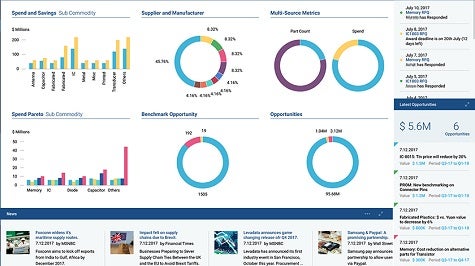Supply chains are fluid in that at any time, changes in availability of a key component can create a shortage that can have catastrophic effects on the business. The challenge organizations face today is that they are dependent on suppliers that in turn rely on other suppliers for key components. Keeping track of all those dependencies and relationships to optimize the supply requires a lot of experience.
LevaData today announced a Leva cloud analytics application that makes use of machine learning and other artificial intelligence applications to analyze internal contract data and external data sources to identify both potential supply chain issues and opportunities. LevaData CEO Rajesh Kalidindi says the goal is to enable organizations to better understand how events occurring around the globe will affect their supply chain, says Kalidindi.
“We gather news feeds from thousands of sources,” says Kalidindi.
Kalidindi stresses that Leva is not designed to replace supply chain managers. Leva acts as a strategic advisor capable of analyzing thousands of data inputs to identify risks and suggest ways to not only save money, but also how long that opportunity is likely to last, says Kalidindi.
Rather than being a black box, Kalidindi says LevaData has taken pains to make sure that all the data sources being employed to generate a recommendation are transparent. The recommendations themselves rely on a mix of internal data, anonymized data collected by LevaData and public information. That’s critical if organizations are to have confidence in the recommendations being made, says Kalidindi.
They say to be forewarned is to be forearmed. The days when supply chain managers needed to convene a war room to deal with every emergency may in fact be coming to an end because they already know not only what the issue is, but also what options are available to remedy it.



